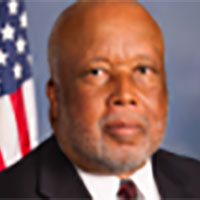One of the things that concerns me most in the aftermath of January 6th is that the lies that led up to the violence of that day haven’t gone away. Before Donald Trump lost the 2020 election, he worked for months to sow distrust in our election systems, casting doubt on the legitimacy of important tools for voter access such as drop boxes and vote-by-mail—tools that were especially important in an election that took place in the middle of a pandemic. After he lost the election, Trump and his allies spread misinformation about voter fraud and worked to overturn the election.
That misinformation contributed to the violence of January 6th. As Chairman of the Select Committee investigating January 6th, I’m leading the effort to make legislative recommendations to help make sure nothing like that day ever happens again.
But setting aside my role as that committee’s chairman, as Representative for Mississippi’s Second Congressional District, I have other serious concerns about the ongoing impact of that misinformation.
Protecting our most basic freedoms should not be partisan in the least. It was imperative for us to pass legislation like H.R. 4, the John R. Lewis Voting Rights Advancement Act, to restore the power of the Voting Rights Act to protect the right to vote. As Chairman of the Homeland Security Committee, I have fought to protect the voting rights of all Americans and secure funding to help State and local election officials replace outdated, unsecure election equipment.
Let’s be clear, the 2020 election was as secure as any election in our history. Yet lawmakers across dozens of states continue to spread false claims about voter fraud as justifications for new, state-level legislation that will make it harder to vote—particularly in communities of color and low-income areas. You’ll hear these proposals described as “election integrity” laws. Don’t be fooled. What we’re talking about is voter suppression, plain and simple.



